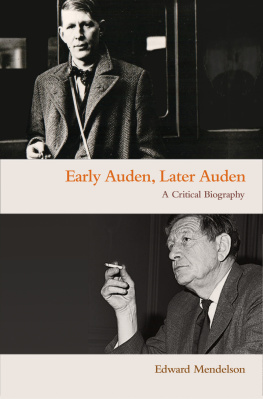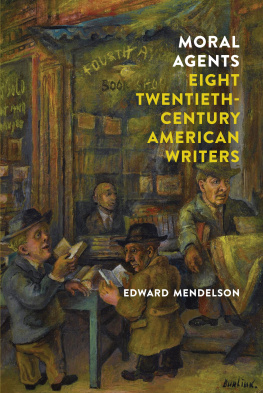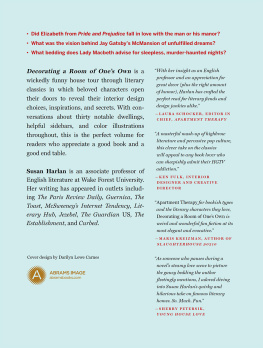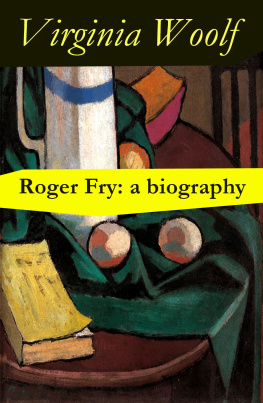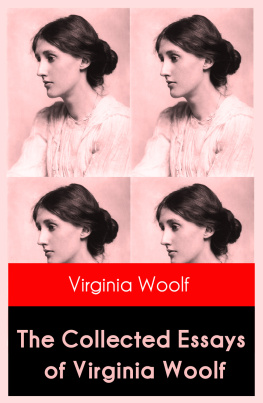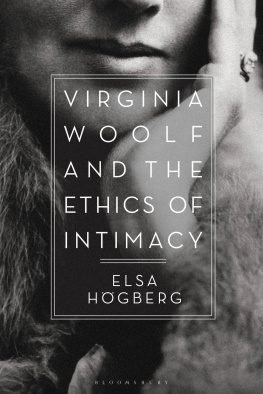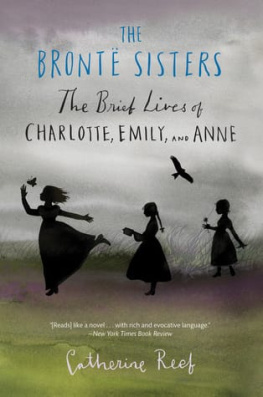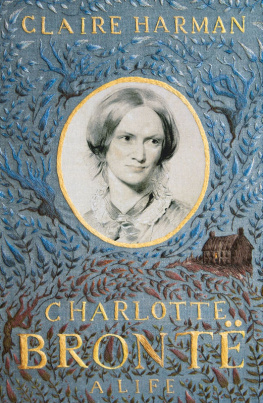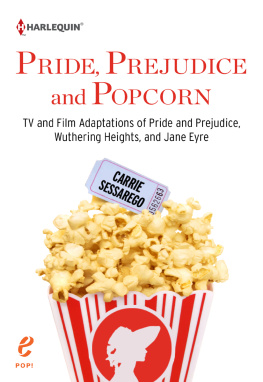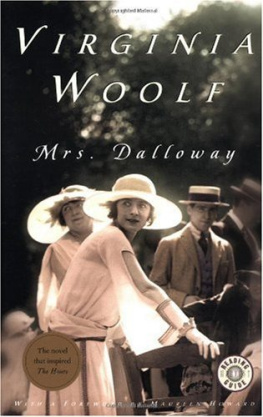A thing there was that mattered; a thing, wreathed
about with chatter, defaced, obscured in her own life,
let drop every day in corruption, lies, chatter.
VIRGINIA WOOLF , Mrs. Dalloway
She felt rather inclined just for a moment to stand still
after all that chatter, and pick out one particular thing;
the thing that mattered
virginia woolf,To the Lighthouse
INTRODUCTION
This book is about life as it is interpreted by books. Each of the chapters has a double subject: on the one hand, an English novel written in the nineteenth or twentieth century, and on the other, one of the great experiences or stages that occur, or can occur, in more or less everyones life. In writing about Mary Shelleys Frankenstein(1818) I have also tried to write about childbirth and its moral and emotional meanings. In writing about Emily Bronts Wuthering Heights(1847) I have also written about the moral and emotional meanings of childhood. The remaining chapters follow a similar pattern: the chapter about Charlotte Bronts Jane Eyre(1847) is also about the process of growth into adulthood, and the chapter about George Eliots Middlemarch(187172) is also about marriage. In the three chapters devoted to novels by Virginia Woolf, the one on Mrs. Dalloway(1925) is about personal love; the one on To the Lighthouse(1927) is about parenthood; and the one on Between the Acts(1941) is about the stage when life surrenders to the next generation.
The book is arranged chronologically so that the sequence of chapters corresponds more or less to the sequence of experiences that occur in the course of life and also to the historical sequence in which the seven novels were written. Taken as a whole, it is designed to provide something on the order of a brief (extremely brief) history of the emotional and moral life of the past two centuries, an inner biography of the world of thought and feeling that came into being in the romantic era of the late eighteenth and early nineteenth centuries.
Anyone, I think, who reads a novel for pleasure or instruction takes an interest both in the closed fictional world of that novel and in the ways the book provides models or examples of the kinds of life that a reader might or might not choose to live. Most novels of the past two centuries that are still worth reading were written to respond to both these interests. They were not written to be read objectively or dispassionately, as if by some nonhuman intelligence, and they can be understood most fully if they are interpreted and understood from a personal point of view, not only from historical, thematic, or analytical perspectives. A reader who identifies with the characters in a novel is not reacting in a nave way that ought to be outgrown or transcended, but is performing one of the central acts of literary understanding.
Scientists and mathematicians, in the course of their work, need not think about the course of their own lives, but that is exactly what literary critics ought to think about when they think about the shape of a novel or poem. This does not mean that they ought to impose their thoughts about their own lives on their readers. In most cases, the less that critics actually say about themselves, the better will be their criticism, but criticism is always more memorable, more convincing, more valid, when the critics voice isand sounds likethe personal voice of someone who has learned from unique personal experiences, rather than a dispassionate impersonal voice that sounds like the product of advanced professional training. In this book I have tried to contribute to literary studies in the professional sense by saying a few things that I think have not been said about these seven novels, but I have also tried to address that part of every readerincluding every academic and professional readerwhich takes a passionate interest in his or her own past and future. This book is written for all readers, of any age, who are still deciding how to live their lives.
The novels I discuss are the ones written in English that, as far as I know, treat most deeply the great experiences of personal life, even if, in some instances, their authors seem to me profoundly mistaken in some of their views. All these novels were written by women, three of them by Virginia Woolf There is a reason for this, but it has nothing to do with any fantasy that women have inherent depths of feeling that men do not, or that women have greater moral and emotional intelligence than men have, or that women have any other essential qualities denied to men. The reason that women writers in the nineteenth and twentieth centuries were more likely than men to write about the emotional depths of personal life is that they were more likely to be treated impersonally, to be stereotyped as predictable members of a category, rather than recognized as unique human beings. A woman writer therefore had a greater motivation to defend the values of personal life against the generalizing effect of stereotypes, and to defend those values by paying close attention to them in her writing, by insisting that those values matter to everyone and that everyone experiences them uniquely.


